Experts offer strategies to encourage widespread acceptance of the coronavirus vaccine
The pandemic has spiraled out of control as a more contagious version of COVID-19 spreads, increasing the urgency to quickly vaccinate as many people as possible. Yet polling over the last several months has shown that many Americans have safety concerns and don’t want the vaccine just yet. USC experts say that hesitancy can be overcome by normalizing vaccination and with straightforward information from trusted sources such as clinicians and pharmacists.
Watch a webinar produced by the USC Schaeffer Center about encouraging vaccine adoption.
Contact: Leigh Hopper at lhopper@usc.edu or (310) 308-0405
Tailor the message to the audience
“We have a large number of people who will take the vaccine willingly and they’re excited about doing so. But there’s also a large group that is hesitant. Some Republicans are hesitant to take the coronavirus vaccine. The Black community is highly vaccine-hesitant; there’s a lack of trust due to exploitation in the health care system.
“However, many in the vaccine-hesitant are open to new information, and doctors are well-positioned to lead vaccine encouragement. They will help us travel the last mile toward vaccine-generated herd immunity. Clinicians will need to tailor messages. There’s not one message that will appeal to all groups.”
Jason Doctor is an associate professor and chair of the Department of Health Policy and Management at the USC Price School of Public Policy, and a behavioral economist at the USC Schaeffer Center for Health Policy & Economics.
Contact: jdoctor@usc.edu
Vaccines in ‘the heart of the community’
“Converting Dodger Stadium from a testing center into a vaccine supersite, as L.A. is doing this week, makes COVID vaccination more visible in a positive way and helps normalize it — especially for a Black and Latino population that has historically been discriminated against in health care.
“Having a vaccination center in the heart of the community can open up lines of trust.”
April Thames is an associate professor of psychology and psychiatry at the USC Dornsife College of Letters, Arts and Sciences. Her research has focused on how racist experiences increase inflammation in African American individuals, raising their risk of chronic illness.
Contact: thames@usc.edu
Misinformation abounds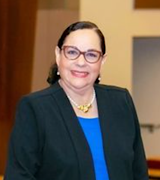
Lourdes Baezconde-Garbanati, a professor of preventive medicine and the associate dean for Community Initiatives at the Keck School of Medicine of USC, says mistrust and misinformation abound: Vaccines cause infertility. Vaccines give you COVID-19. Vaccines alter your genetic makeup. Vaccines are a ploy by the government to implant microchips to track people — all false claims.
“We see a lot of concern about vaccines, fueled in part by an anti-vaccine movement that we happened to walk into with the COVID pandemic,” she says. “We’re seeing a trend where at first there was a high level of support for vaccines, but that started to diminish among the African-American and Hispanic communities. Then we found health care providers were hesitant to get the vaccine. We see huge disparities in acceptance and unless we get herd immunity with lots of people vaccinated, we’re not going to get this disease under control.”
Baezconde-Garbanati is part of the Department of Preventive Medicine Pandemic Center and is running several COVID-19 efforts. She helps low-income and disadvantaged communities in Los Angeles respond to COVID-19.
Contact: baezcond@usc.edu
Pharmacists can be a trusted information source
“L.A. County is turning to pharmacies to accelerate vaccine distribution. Pharmacists are the most-contacted health professionals for people with chronic conditions such as diabetes and hypertension — those at high risk for COVID-19. At many independent community pharmacies, pharmacists know their patients well enough to be proactive in urging them to come in for a vaccination.
“The plan is to open dozens of additional vaccination sites, many of which will be retail pharmacies. Pharmacists are especially well-positioned to lead COVID-19 vaccine encouragement efforts, with 90% of the population living within 5 miles of a pharmacy.”
Vassilios Papadopoulos is dean of the USC School of Pharmacy.
Contact: vpapadop@usc.edu
Virus mutation won’t outwit vaccine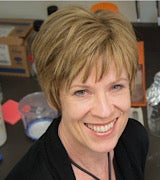
“The good news about our immune response to vaccines is that it’s multifaceted, creating antibodies, for example, that will recognize different parts of the virus spike protein. Therefore, even if the virus mutates, and perhaps becomes resistant to one antibody, there will be others lining up to take its place. So far, very early lab experiments suggest that the new strains will be just as sensitive to the immunity created by these vaccines.”
Paula Cannon is a distinguished professor of molecular microbiology and immunology at the Keck School of Medicine of USC. She is an expert in how viruses are transmitted and controlled.
Contact: pcannon@usc.edu
Simple language is key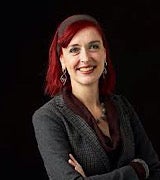
“Using a nationally representative survey that we’ve been doing every two weeks, we’ve been asking people since March 2020 how likely they are to get the coronavirus vaccine if it’s available. In March, 83% of our participants said they would get it. In December, that declined to 63%.
“That suggests we really need to get in place a good vaccine allocation and communication strategy to encourage people to get vaccinated.”
Wändi Bruine de Bruin, Provost Professor of Public Policy, Psychology, and Behavioral Science in the USC Price School of Public Policy and the Dornsife College, notes the importance of communicating with simple language. In a 2008 study she conducted, she learned that parents seeking information about vaccination would search the word “shots.” The search results pointed them to anti-vaccine websites instead of the information from the CDC.
Bruine de Bruin’s research aims to understand and inform how, across the life span, people make decisions about their health, their well-being, and their environmental impacts.
Contact: wandibdb@usc.edu
Unified messaging will persuade the reluctant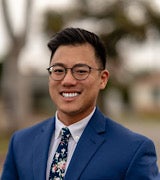
“Over the past three weeks, our USC pharmacy faculty, staff, residents, student pharmacists and alumni volunteers have been vaccinating hundreds of frontline healthcare providers each day at a community-based clinic in Los Angeles. Every day, we witness excitement, enthusiasm and relief among those healthcare workers who are getting the vaccine.”
“We’re proud to use our pharmacists’ and students’ expertise to deploy these life-saving vaccines in the community. At the same time, we know there is a lot of work ahead to reach other community members who are reluctant to get the vaccine. It’s going to take a unified effort and targeted messaging to encourage those who are hesitant to get vaccinated.”
Richard Dang is an assistant professor of clinical pharmacy at the USC School of Pharmacy and chair of the California Pharmacists Association COVID-19 Taskforce.
Contact: rdang@usc.edu
Fastest route to ‘normal’ is adoption of safe vaccine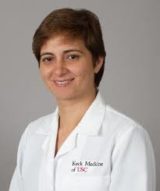
“The COVID-19 vaccines are very safe and have gone through a rigorous FDA review. The main difference between the COVID-19 vaccines and other vaccines is that there is a slightly higher risk of anaphylaxis, or an allergic reaction. As for other side effects, some people experience some tenderness at the site of the injection and some mild to moderate symptoms within 48-72 hours of receiving the vaccine such as a temperature, chills and body aches.
“The best way to encourage widespread COVID-19 vaccination among the public is to stress that these vaccines are not only safe, they are also highly effective, and provide 95% protection (after 2 doses of the Pfizer or Moderna vaccines) against SARS-CoV-2. Vaccine efficacy in preventing severe COVID-19 disease is especially impressive. In addition, people need to know that for us to get back to `normal,’ we will need to reach herd immunity, which requires 70%-80% of the population to have some level of protection against SARS-CoV-2.
“We can achieve this protection either after COVID-19 infection or with the COVID-19 vaccine. The more who are vaccinated, the more quickly we will get closer to our ‘normal’ lives. In the meantime, even if you have received the vaccine, it is important to continue with all of the safety recommendations already in place, such as wearing a mask, physical distancing and washing your hands frequently. Some 30%-40% of people are asymptomatic carriers, and while these vaccines have shown to reduce clinical disease in individuals, they have not shown to reduce transmission. In addition, one of the new variants of SARS-CoV-2 is 30%-50% more transmissible, so we all must remain vigilant.”
Neha Nanda is medical director of infection prevention and antimicrobial stewardship at Keck Medicine of USC.
Contact: Alison.Rainey@med.usc.edu.
# # #



